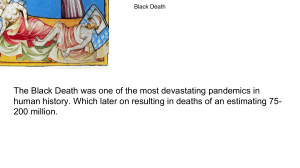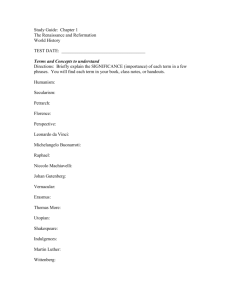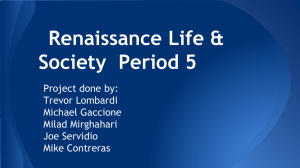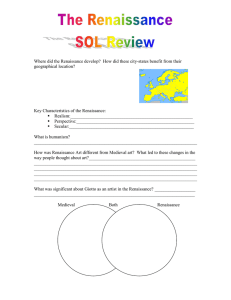World History Homework: Republics, Machiavelli, Renaissance
advertisement
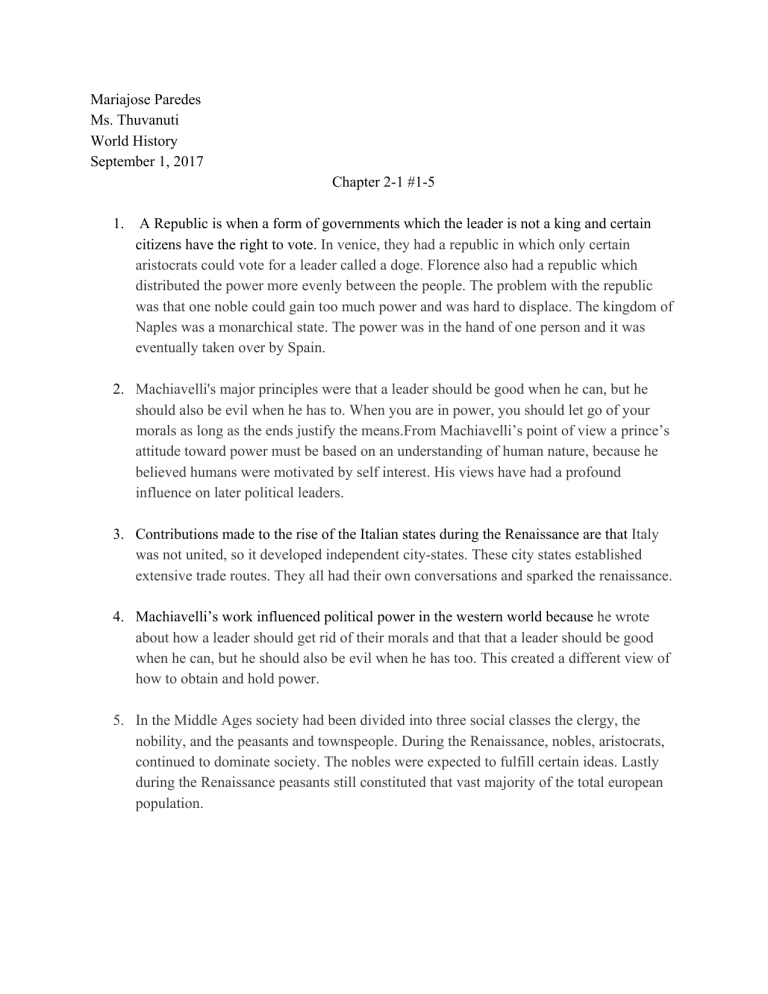
Mariajose Paredes Ms. Thuvanuti World History September 1, 2017 Chapter 2-1 #1-5 1. A Republic is when a form of governments which the leader is not a king and certain citizens have the right to vote. In venice, they had a republic in which only certain aristocrats could vote for a leader called a doge. Florence also had a republic which distributed the power more evenly between the people. The problem with the republic was that one noble could gain too much power and was hard to displace. The kingdom of Naples was a monarchical state. The power was in the hand of one person and it was eventually taken over by Spain. 2. Machiavelli's major principles were that a leader should be good when he can, but he should also be evil when he has to. When you are in power, you should let go of your morals as long as the ends justify the means.From Machiavelli’s point of view a prince’s attitude toward power must be based on an understanding of human nature, because he believed humans were motivated by self interest. His views have had a profound influence on later political leaders. 3. Contributions made to the rise of the Italian states during the Renaissance are that Italy was not united, so it developed independent city-states. These city states established extensive trade routes. They all had their own conversations and sparked the renaissance. 4. Machiavelli’s work influenced political power in the western world because he wrote about how a leader should get rid of their morals and that that a leader should be good when he can, but he should also be evil when he has too. This created a different view of how to obtain and hold power. 5. In the Middle Ages society had been divided into three social classes the clergy, the nobility, and the peasants and townspeople. During the Renaissance, nobles, aristocrats, continued to dominate society. The nobles were expected to fulfill certain ideas. Lastly during the Renaissance peasants still constituted that vast majority of the total european population.
